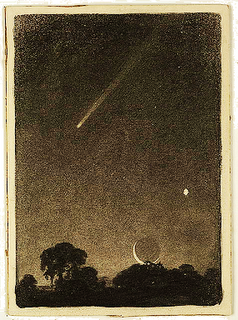 This poem was very suiting to the time of year we're currently in. But, the poem also speaks truths in how commercialized the Christmas/Holiday season has become.
This poem was very suiting to the time of year we're currently in. But, the poem also speaks truths in how commercialized the Christmas/Holiday season has become.Betjaman speaks about people missing the point in Christmas. While we are supposed to be celebrating the symbol of Jesus' birth, we instead get stressed out with shopping for our friends and family.He also mentions the idea of Christmas Cards, and how if you get one, you feel obligated to send one back just because they sent you one... even though you don't even speak to that person all that much.
Christmas has turned into such a commercialized holiday now. It ends up bringing more stress than it's supposed to, and ends up giving you a sour feeling in your stomach sometimes. It reminds me of something oiut of an AA meeting. I'm pretty sure one of the steps is to ask for forgiveness for all those who you hurt. It's almost like the idea of Christmas cards giving a message of "Hey, we don't talk anymore, we should really start that, Merry Christmas!" and you know the person doesn't mean to actually keep in touch, it's just something that is said. Don't get me wrong, I'm sure a lot of people have intentions of actually keeping in touch, but some just say it in a card once a year and never make the effort, it's very fake.
Compound Sentence: He recieved a card in the mail, and he felt obligated to send one back.
Verb Agreement: Running around shopping for gifts has become a stressful activity.
Who/Which/That Clause: The meaning of Christmas, which is symbolic of the birth of Christ, has been forgotten.
Gerund Phrase: Looking back at Christmases past, he realized how much the season has changed,
